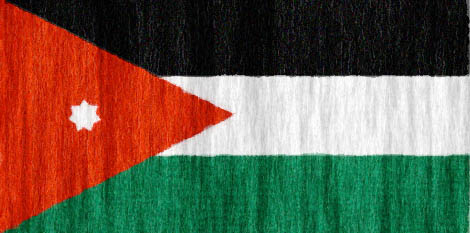By Arno Maierbrugger
Gulf Times Correspondent
Bangkok
Jordan is the first country in the Middle East that will deploy a decade-old artificial rainmaking technology developed in Thailand. This is the result of a meeting between Thai experts and Jordan officials held on August 6 in Amman. The project will focus on cloud seeding to increase water availability for drinking purposes and for storage in the country’s dams, as well as for irrigation in agriculture, the Jordan News Agency reported.
The technology in question is called “Royal Rainmaking Technology”, a method developed by Thailand’s current King Bhumibol Adulyadej (86) as early as in 1969. The monarch, who studied at the Federal Institute of Technology in Lausanne, Switzerland, developed a mixture of chemicals to seed clouds and trigger cloud formation, grow clouds, move them to a designated area and initiate rainfall by using silver iodide and other components in the process. The technology received a patent from the European Patent Office, among others, and since has been successfully deployed in Thailand, Australia and lately in Malaysia. Jordan received permission from Thailand to use the technology in 2009 and is one among a number of other countries seeking permission to use it.
Jordan has one of the lowest levels of water availability per capita in the world, suffering from an annual water deficit of 450mn cu m, while per capita share of water does not exceed 150 cu m per year, well below the so-called water poverty line of 1,000 cu m per year. The government and global organisations in the past have kicked off a number of projects to provide more and cleaner water to the population to relieve health and environmental impacts, but scarcity is expected to become an even greater problem over the next two decades as the population grows and climate change makes natural rainfall increasingly unpredictable, particularly in this region.
The specialty of the Thai King’s method lies in the process of seeding warm and cold clouds simultaneously via a special process, through which silver iodide is shot into cold clouds while at the same time one of six chemical formulae is released into warmer clouds. The technology has been successful in creating and prolonging rainfall and attracted international interest in the system, namely from Indonesia, the Philippines and a number of Middle East nations.
What is known as “Royal Rain” in Thailand has initially been developed by the King as one of his numerous projects to improve living conditions for the rural population in his country, especially in the poorer northeast were droughts are common. It is also a contribution to solve Thailand’s complex problem of water management and related flooding which occurs almost annually.
In Asia, rain making or cloud seeding is a process frequently used in certain regions, albeit with technologies that differ in effectiveness. China has the largest cloud seeding programme in the world and usually forces cloud formation and rain by firing rockets in the sky that carry and distribute silver iodide.
India has also been conducting cloud seeding operations since the 1980s.
In the Middle East, the UAE launched an artificial rain making programme in 2010, resulting in successfully creating rain storms in the desert regions of Dubai and Abu Dhabi.

